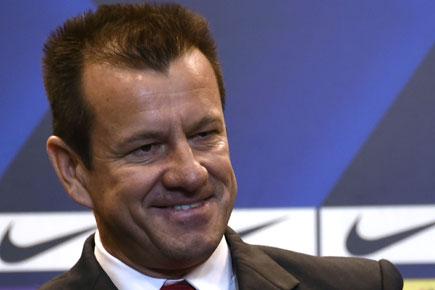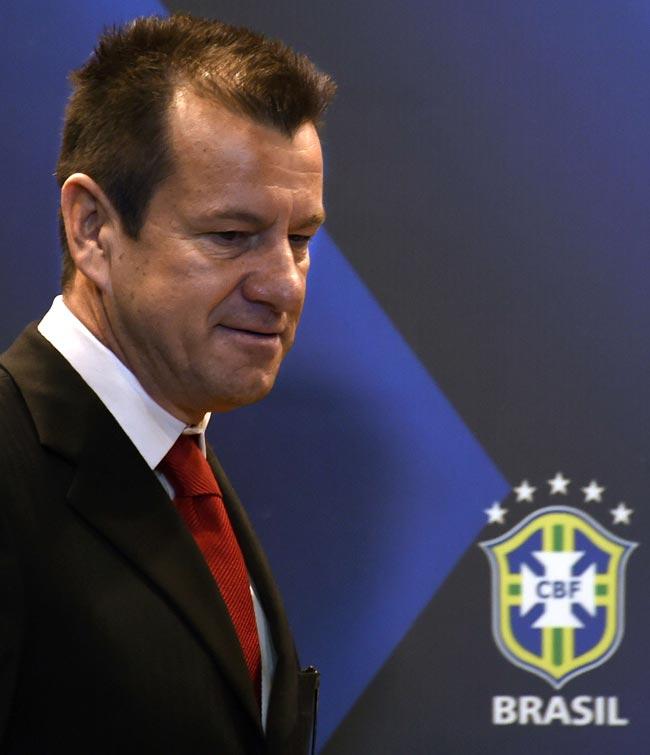Two weeks after being hammered 7-1 by Germany in the World Cup semi-finals, Brazil have named former skipper Carlos Dunga as coach Luis Felipe Scolari's successor

Brazil's 1994 World-Cup winning skipper Dunga
Rio de Janeiro: Dunga won the World Cup as a player for Brazil and now the country is giving him a second chance to get the trophy as a coach. The Brazilian Football Confederation (CBF) has named Carlos Dunga, 50, to run the national team after Luis Felipe Scolari's humiliation at the World Cup this month, including a devastating 7-1 defeat by Germany.
ADVERTISEMENT
ALSO READ: Brazil sack Dunga, players face angry backlash
Dunga was previously in charge from 2006 until 2010, when he paid the price for World Cup failure -- Brazil were beaten in the quarter-final. He did win the 2007 Copa America and the Confederations Cup in 2009, however, after he replaced Carlos Alberto Parreira.
"Football has changed. It changes every moment and every day. We like to talk here about talent and playing off the cuff . But we also praise German organization. So we have to harness our talent with planning," Dunga said as he accepted the post on Tuesday.

Brazil's 1994 World-Cup winning skipper Carlos Verri, better known as 'Dunga', arrives for his presentation as the new coach of the Brazilian national football team, at the headquarters of the Brazilian Football Confederation (CBF) in Rio de Janeiro, on Tuesday. Pic/AFP
Brazil has a history of giving coaches two tries at the national team. Scolari guided Brazil to a World Cup triumph in 2002 in his first stint. Parreira won the World Cup at USA '94 and then came back for a less successful stint in 2006.
Dunga, a close friend of Gilmar Rinaldi, Brazil's new technical coordinator overseeing a football revolution after the World Cup humiliation, is better known as a player and captain. He is hardly the archetypal Brazilian samba football star.
As a combative midfielder he never earned the effusive plaudits offered to Romario, Ronaldo or Ronaldinho. He was a pillar of the 1994 world champions though. His usefulness behind strikers Romario and Bebeto is illustrated by his 91 caps for his country after making his debut in 1987.
Dunga skippered the under-20 side to world success in 1983. By 1989, he was an established figure, having won the Copa America -- though his tough style sat uneasily with fans who pointed to a poor 1990 World Cup when Brazil were beaten by Argentina in the second round, as 'proof' of his ineffectiveness.
But in 1994, Parreira recognised the leadership qualities of a man christened Carlos Caetano Bledorn Verri, making him skipper after Rai was dropped.
ALSO READ: Dunga, Brazil media on rocky road
Having ended a six-year spell in Italy to play for Germany's VfB Stuttgart, Dunga kept his nerve in the penalty shoot out against the Italians and Brazil won the trophy, ending a 24-year drought stretching back to Pele.
In 1998, he was again captain, despite by then playing in Japan with Jubilo Iwata. But he could not prevent a 3-0 loss to France in the Paris final. Dunga then ended his international career, also quitting Japan to wind down his career with first club Internacional.
Once he stopped playing, it was not long before the CBF put out feelers for him to replace Vanderlei Luxemburgo as head coach.
He distanced himself from the idea amid reports he believed the CBF needed the overhaul which Brazil is now tentatively trying to kick-start.
Dunga accepted when the CBF came calling with more urgency in 2006 despite his lack of coaching experience.
Success of a kind came with the Copa America and Confederations Cup wins -- in the latter in 2009, Brazil recovered from two goals down to defeat the United States in the final.
In 2010, Dunga decided not to take a teenage prodigy named Neymar to the World Cup in South Africa -- a decision which met with the disapproval of Pele, among others.
But it was a mistake from goalkeeper Julio Cesar which ended his reign. Brazil went down 2-1 to the Netherlands in the quarter-finals and he left with 42 wins for six defeats in 60 games in charge.
In late 2012, Dunga took the reins at Internacional but received his marching orders just eight months later.
Now, Brazil are again turning to a 'devil' they know as they look to next year's Copa America in Chile, the first stepping stone on the road to the 2018 World Cup in Russia.
Neymar will then be a comparative veteran but Dunga will need all the "determination" that he vaunted as a player.
 Subscribe today by clicking the link and stay updated with the latest news!" Click here!
Subscribe today by clicking the link and stay updated with the latest news!" Click here!






